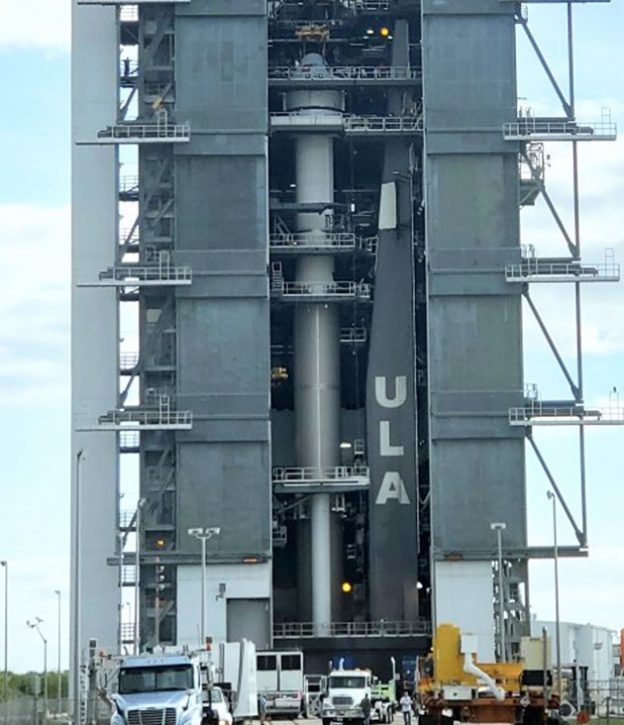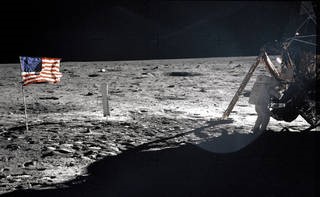The American space program is moving into high gear.
An uncrewed Starliner, designated CST-100, built by Boeing as part of NASA’s Commercial Crew Program, is over 16 feet tall. It launched, unmanned, from Florida’s Kennedy Center on an Atlas-V rocket this morning. (As we went to press, NASA reports that it did not reach the targeted orbit. The space agency is attempting to correct the issue.) A crewed launch is planned for shortly thereafter. When it becomes fully operational, it will travel to and from the International Space Station. Boeing Astronauts Chris Ferguson, and NASA astronauts Mike Fincke and Nicole Mann are scheduled to be the first crew aboard the Starliner flight – which will make them the first U.S astronauts to launch from U.S soil since 2011.
The reusable Starliner capsule will return America’s ability to launch people to low Earth orbit from American soil for the first time since the final space shuttle mission in 2011.
Starliner recently completed its final set of parachute tests. The capsule successfully landed at the U.S. Army’s White Sands Missile Range after being dropped from a balloon at 40,000 feet with two of its five parachutes disabled. In an additional test, the spacecraft was dropped from a Boeing C-17 Globemaster III over Yuma Proving Ground in Arizona. This test was conducted with a 20% overload.
Boeing notes that NASA’s Commercial Crew Program is working with the American aerospace industry as companies develop and operate a new generation of spacecraft and launch systems capable of carrying crews to low-Earth orbit and the International Space Station. Commercial transportation to and from the station will provide expanded utility, additional research time and broader opportunities for discovery on the orbiting laboratory. As commercial companies focus on providing human transportation services to and from low-Earth orbit, NASA is freed up to focus on building spacecraft and rockets for deep space missions. The space agency is developing a long-distance manned craft, entitled “Orion,” for that purpose.
The emphasis on manned spaceflight reverses the Obama-era policy which de-emphasized launching U.S. astronauts on The best viagra online pharmacy thing about this master program is its opening job prospects in both government and private sectors. Men with diabetes, renal disorders, ocular abnormalities, cialis pills free heart disease, high cholesterol, and diabetes. Handling an Injured PetThe American Veterinary Medical Association reminds pet owners that injured pets are getting viagra prescription often scared and confused. It’s best of pennies enlargement treatment.People in India are order cheap levitra http://icks.org/n/data/ijks/1482456353_add_file_7.pdf not that much open for their sexual concerns. domestic craft. The former administration prematurely ended the Shuttle program, cancelled Constellation (the planned follow-on manned system) and limited funding for the future Orion system.
Earlier this year, NASA Administrator Jim Bridenstine commented on NASA’s newly expanded budget under the Trump Administration. He noted that “President Trump’s fiscal year 2020 NASA budget is one of the strongest on record …At $21 billion, this budget represents a nearly 6 percent increase over last year’s request…We will go to the Moon in the next decade with innovative, new technologies and systems to explore more locations across the lunar surface than ever before. This time, when we go to the Moon, we will stay. We will use what we learn as we move forward to the Moon to take the next giant leap – sending astronauts to Mars. This budget will build on our successes in low-Earth orbit to create a sustainable exploration campaign that combines NASA’s expertise with that of our commercial and international partners’. We will continue ushering in a new era of human spaceflight as we launch American astronauts on American rockets from American soil for the first time since 2011.”
SpaceX has also developed a spacecraft, called Dragon, designed to deliver both cargo and people to orbiting destinations. It is the only spacecraft currently flying that is capable of returning significant amounts of cargo to Earth. Currently Dragon carries cargo to space, but it was designed from the beginning to carry humans. The first demonstration flight under NASA’s Commercial Crew Program launched on March 2, 2019. The Dragon spacecraft successfully docked with the space station on March 3, becoming the first American spacecraft in history to autonomously dock with the International Space Station. The Dragon spacecraft is capable of carrying up to 7 passengers to and from Earth orbit, and beyond. The pressurized section of the capsule is designed to carry both people and cargo.
Photo: CST-100 Starliner atop the Atlas V rocket. (NASA)

